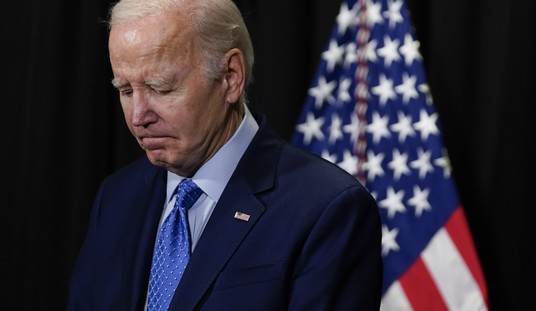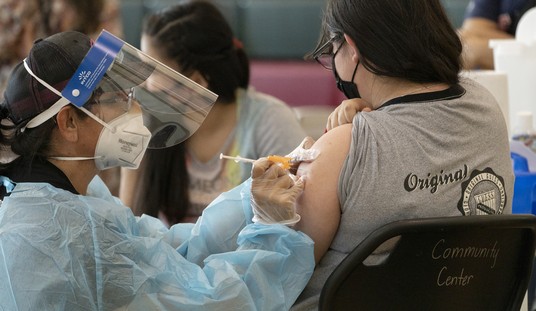In August 2011, 18 months ago, the regime of Muammar al-Qadhafi was overthrown. Qadhafi was a terrible dictator; he was overthrown only due to heavy NATO involvement in the revolt, including engagement in direct aerial attacks on government positions.
Under Qadhafi, Libya often subverted the Middle East and Africa because the dictator wanted to do so. Now, Libya subverts the Middle East and Africa through his successor’s inaction.
Given Qadhafi’s long, repressive rule and Libya’s lack of democratic development, the new government, installed by the United States and certified in October 2012 election, faced a tough task. At least, though, it has access to massive oil income. How well has it done?
Certainly, it is a moderate regime that seems well-intentioned. But getting control over such a turbulent country with so many arms, militias, radical Islamists, and regional disputes is difficult. Libya is also a U.S. client and scene of the September 11, 2012, attack—much of which remains mysterious—that killed four American officials.
There is no evidence that the Obama Administration has made a serious effort to investigate this attack or to bring the perpetrators to justice. In normal times, this would be shocking and a major focus of mass media coverage and political debate on a daily basis. Yet this has not happened.
Moreover, since it installed the Libyan government, nominally to protect human rights there, the United States has some responsibility for its conduct. The fact is that the Obama Administration has far more leverage over the Libyan government than it does over counterparts in Iraq or Afghanistan, when there was the massive, long-term presence of U.S. troops.
Apparently, the main uses to which the U.S. government has put its client in Libya is to contribute large sums to the (Muslim Brotherhood-dominated) Syrian opposition group abroad and to permit arms smuggling to it (though perhaps the government was helpless to stop it).
A March 14, 2013, UN Security Council resolution 10939, based on a report by the United Nations Support Mission in Libya (UNSMIL), evaluates the situation in Libya. Despite official optimism in its text, and sympathy for the difficulty of the Libyan government’s task, the conclusion is a clear one: Things are not going well.
Here is what the detailed report of the UNSMIL head, Tarek Mitri, said. While his report praised the Libyan leadership’s efforts, he noted that there is still no constitution drawn up by the elected General National Congress. A report done by experts for the UN stated:
The National Transitional Council’s control has remained conditional, a product of continual negotiation with autonomous militia and local councils.
–A March 5 session of the Congress was disrupted by protestors threatening to use force to stop passage of legislation.
–There was an attempt to assassinate President el-Magariaf.
–A report by experts for the UN Security Council concluded: “While a national army exists, the majority of military power rests with various militias, mostly associated with local councils.” These militias are largely radical Islamists and one of them was responsible for the murder of the four Americans. So one reason that the U.S. client regime in Libya cannot investigate the murder of U.S. officials is that the same regime is dependent on the murderers, both directly and through the support that militia receives through its colleagues and the Benghazi city council.
–The Al-Assima television station was stormed by armed men, kidnapping the director and five of his staff, though they were later released.
–There was an attack on a church in Benghazi and other Christian targets.
–“Significant progress was hampered by weak State institutions and security coordination mechanisms, as well as continuing mistrust of the State’s security forces by many of those who fought during the revolution, most of whom remained armed.”
–“Libya remained awash with unsecured weapons and munitions, which posed a regional security risk given Libya’s porous borders.”
–Many prisoners from the civil war were still being held by militias in private and secret facilities, in effect as hostages.
–The country’s government still doesn’t have control over the eastern and southern areas of the country allowing for cross-border attacks against neighbors.
–The Security Resolution expressed, “Grave concern at continuing reports of reprisals, arbitrary detentions without access to due process, wrongful imprisonment, mistreatment, torture and extrajudicial executions in Libya.”
–Egyptian Christian workers in Libya have been arrested and mistreated, apparently purely on a religious basis. African migrants within Libya have been seriously mistreated, apparently purely on a racial basis.
–At the earliest, work would only begin on the new constitution in the fall of 2013 and who knows when it will be adopted?
–In a remarkable use of diplomatic optimism, Mitri concluded that the government is “dealing with political isolation with wisdom and alertness.”
According to the Final report of the UN Security Council Panel of Experts for 2013, here is what’s happening with Libyan weaponry:
–Egypt is facing threats to its national security by the increased arming of [Islamist] terrorist , criminal, and anti-government groups, mostly in the Sinai but also throughout the country.
–Weapons also go through Egypt to the Gaza Strip where it reaches Hamas to use against Israel. An October 2012 military parade there displayed such acquisitions as the Belgian-made F2000 and Russian-made AK-103 assault rifles.
–Syrian rebels have received arms through Turkey. The UN panel saw both SA-24 and SA-7b MANPADS intercepted on a boarded ship as well as anti-tank missiles (Metis-M, Konkurs-M and MILAN) and a variety of other weapons and ammunition. Here’s a good article on Libya’s Sa-24s and why they were not previously known to be in Libyan arsenals.
Other countries affected were Mali, the Niger, and to a lesser extent Chad and Mauritania where fragile states are shaken by terrorism and criminal activity using these weapons. Al-Qaida in North Africa and Boko Haram in Nigeria have also obtained additional weapons for their terrorist activities.
This is a description of an anarchic mess. It is important for U.S. interests especially regarding Libya’s role as an arsenal for terrorist and insurgent groups. The trouble, however, is that the Obama Administration wants most of these arms to go to most of these groups. The other reason for Libya’s importance is that there is no progress being made on the Benghazi attacks on Americans. But perhaps the Obama Administration wants no progress on investigations of this incident.








Join the conversation as a VIP Member